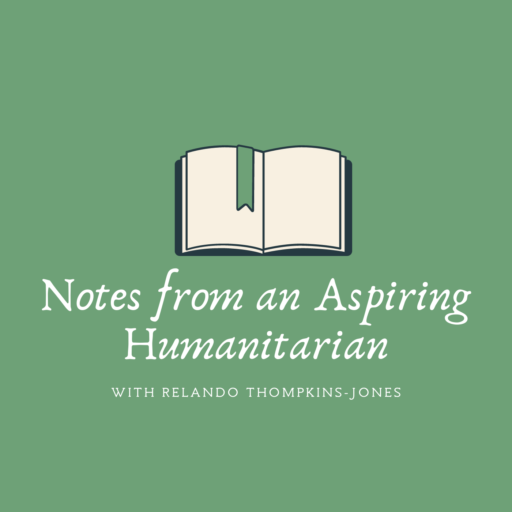

Dr. Adrienne Dessel
In today’s episode of the N.A.H. Podcast, I interview Dr. Adrienne Dessel; Social Worker, Educator and Intergroup Dialogue Practitioner about her latest co-edited book: Conservative Christian Beliefs and Sexual Orientation in Social Work: Privilege, Oppression, and the Pursuit of Human Rights.
We discuss the book and its implications for Social Work practitioners, faculty and students.
Book Description
“This important new work addresses the tensions and divisions in social work between conservative Christian and lesbian, gay, and bisexual (LGB) students, practitioners, faculty, and clients.
Authors representing a diverse range of sexual orientation, religious, and professional identities explore the different facets of the debate regarding freedom of religious expression and full sexual orientation affirmation to provide a deeper understanding of the complexity of topics such as social identity, oppression,power and privilege, human rights and social justice, attitudes and prejudice,and ethics and the law.
Offering insight into the struggles within Christian communities regarding the conflicts between perceived religious mandates and human sexuality, the book also highlights mediators of the relationship between conservative Christianity and sexual orientation bias.
Further, this book addresses a significant gap in the literature by discussing multiple approaches to addressing some of the conflicts between conservative Christian and LGB social workers at individual and institutional levels.
Models of Christian LGB affirmation and advocacy are presented, and recommendations for teaching, research, and practice are provided to move the field forward.”
Listen to N.A.H. Podcast Episode 3: (audio link)
You can also subscribe to the podcast for free at iTunes.
Notes from an Aspiring Humanitarian is a work of love and will continue to be. If you are able, consider supporting (N.A.H.) with a one-time donation or by becoming a monthly patron.
Notes from On-Air References:
Check out Conservative Christian Beliefs and Sexual Orientation in Social Work: Privilege, Oppression, and the Pursuit of Human Rights

Rebecca M. Bolen is the co-editor of the book.
David Hodge’s Article: Does Social Work Oppress Evangelical Christians? A “New Class” Analysis of Society and Social Work
NASW Code of Ethics and a list of frequently asked questions related to the code, which related to instances when religion or other basic values conflict with the Code of Ethics states:
“Religion, politics, tradition, socialization, and other bases of our value system may have prohibitions or directions that are opposed to our interpretation of the Code. Our Code provides the written professional standards of conduct for social workers.
Whereas we may choose to act on other beliefs as being more important than the Code (see Standard 1.06), we must understand clearly that once we act outside of the Code, we no longer are acting as social workers, but in another role.
The client and agency should be made aware of such decisions. It may be important to note that people frequently use their value systems to support their prejudices and dislikes, instead of using them to relate better with others and provide themselves more life satisfaction. Be aware of this before assuming that your values are the basis of your decision to act outside of the Code.”
Around the 15-minute mark, Adrienne refers to Pastor Danny Cortez, who spoke to his congregation about how he changed his mind about condemning people in the LGBT community, due to his own personal growth and exploration, as well as after his son came out to him.
His church was dismissed from their Southern Baptist convention shortly after.
For more information on intergroup dialogue, you can visit Building Bridges Through Dialogue.
Also refer to the following notes:
On Communication: Debate vs. Dialogue
On Communication: Duplicates vs. Complements
Notes from Adrienne’s Basic Tips for Faculty
Be able to talk about your own social identities and how they might influence your perceptions of situations in the classroom.
Seek to understand your relationship to, and comfort level with conflict. What do you need to increase your capacity to engage with conflict? What are your triggers? What do you need to feel supported or challenged enough to remain present when conflict arises? Consider the risks and challenges involved. The same issues that impact us in broader society are in play, and can surface within the classroom as well.
Create a classroom environment that is conducive to sharing, bravery, learning, and action.
The paper activity I talked about can be found in my note, One Way to Spark Dialogue About Privilege, and also within the note, A Story In A Single Image: Challenging The Myth of Meritocracy.
Read the NASW’s Joint Religious Freedom Statement: NASW Joins Other Mental Health Organizations to Protest So-Called “Religious Freedom” Laws
“Our organizations have strong ongoing commitments to promote the health and well-being of LGBT adults and youth; to eliminate violence against LGBT people; and to support full equality in areas such as marriage, employment, housing, public accommodation, military service, licensing, parenting, adoptions and access to legal benefits.
We urge states to reject these harmful and discriminatory bills and to repeal such laws that have already passed.”
From Aspiring Humanitarian, Relando Thompkins-Jones, MSW, LLMSW
—————————————————————————————————————————
(N.A.H.) is a work of love and will continue to be. If you are able, consider supporting (N.A.H.) with a one-time donation or by becoming a monthly patron.
—————————————————————————————————————————
Discover more from Notes from an Aspiring Humanitarian
Subscribe to get the latest posts sent to your email.






















1 Response
[…] Visit the original post on N.A.H. to find additional footnotes, resources, and links I left from the conversation. […]